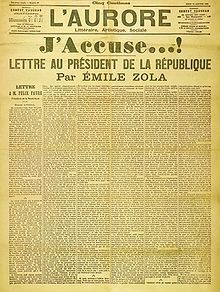New York City’s first police inspector general released a scathing report on the use of chokeholds by the NYPD.
The city’s first inspector general for the NYPD issued a stinging report Sunday questioning whether cops unnecessarily resort to prohibited chokeholds as a “first act” when words could calm things down instead.
In his first report, Inspector General Philip Eure found that in 10 recent cases involving chokeholds – the same banned maneuver responsible for the July 2014 death of Eric Garner – the cops received little or no discipline from higher-ups.
Eure questioned why, in four of the 10 cases, cops wound up using chokeholds as a “first act” against citizens who’d only confronted them verbally, not physically. [..]
Though the report focuses only on the 10 cases, the IG said the pattern he discovered has inspired him to examine a broader sample of use-of-force cases “in order to ascertain whether police officers are escalating encounters and using force too quickly in a systemic manner.”
The other problem that the report revealed that despite the call for “serious punishment” from the Civilian Complaint Review Board, most of the officers received a “slap-on-the-wrist loss of vacation days, “instruction” about police policy or no punishment at all,” all approved by then Police Commissioner Ray Kelly.
One of the results of the massive slowdown by NYPD after the murders of Police Officers Wenjian Liu and Rafael Ramos is that crime rates were not impacted, adding to the argument that “Broken Windows” may be broken policy.
CompStat data showed that summons for parking, moving and criminal violations for the previous week are still down about 74, 65, and 71 percent compared to numbers last year. But the drop from the week before that compared to last year was even greater: all three categories showed declines of 90 or more percent.
Year-to-date murder, rape, robbery and felony assault complaints are down across the, CompStat data shows. [..]
For the critics of “broken windows” theory policing, which stipulates that paying close attention to smaller, quality-of-life issues will prevent greater crime, the NYPD slowdown has inadvertently lent them ammunition. Critics believe the mode of policing, fully supported by Mr. Bratton, unfairly targets minorities and isn’t proven to prevent spikes in crime.
Current Police Commissioner William Bratton, the author of the “Broken Windows” policy, thinks differently
“The trending of that would take a period of time that can’t be measured in the space of a week or now in the space of almost two weeks,” Mr. Bratton said. “We have certainly, undoubtedly the residual benefit of 20 some odd years of changed behavior in the city and that’s not going to be undone in the space of a couple of weeks.”
That, however, is a direct contradiction to his statement on the slowdown at a press conference , when he stated that “911 calls were being responded to, arrests were continuing to be made, and crime has continued to go down.”
He can’t have it both ways. Since 2012, the numbers support the latter. In an article at Salon by Blake Zeff, there were two factors that are proving the critics right.
Ironically, it was Kelly and Bloomberg who would help disprove their own argument. Amid increasing dissatisfaction and public protest, Kelly reportedly ordered precinct executive officers in 2012 to “audit the stop activity to assure better quality.” In 2013, the use of the tactic fell dramatically, which a law enforcement source tells Salon also derived from two additional pressures. First, then-candidate de Blasio spent much of his campaign attacking the practice, arguing that it was racially discriminatory (in the famous “Dante ad” featuring his teenage son, the younger de Blasio said his father would be “the only candidate to end a stop and frisk era that targets minorities”). As the issue got more attention and de Blasio’s campaign surged (largely on the popularity of this argument), this source says, cops were less inclined to pursue the tactic.
The second factor was a federal judge finding the practice unconstitutional, and ruling that, as implemented, it discriminated against minorities. The result was that in 2013, Bloomberg and Kelly (while unsuccessfully appealing that federal ruling) would oversee a massive decrease in the tactic’s implementation, with under 200,000 stops recorded – less than a third the number from just two years before. The result: crime continued to fall.
Could it happen again? That was the big question heading into this year, as de Blasio promised to scale back the practice even further (though not eliminate it), while maintaining strong safety numbers. A verdict was returned this week, with the city announcing that amid a 79 percent drop in stops from last year, crime continued to fall by 4.6 percent, reaching a record low in modern city history.
Blake Zeff joined Lawrence O’Donnell, host of MSNBC’s “Last Word,” to discuss the controversial policy.
At Vox.com, contributor Dara Lind thinks that both sides have gotten this wrong and presents a radical idea
Now, it appears that the NYPD is returning to its usual policy: interacting with residents, but mostly by calling them out for quality-of-life violations. That’s certainly how Bratton believes the NYPD can keep New York safe. But both the slowdown policy and the aggressive “speedup” going on now aren’t effective ways to reduce crime without antagonizing communities.
In fact, evidence suggests the most important thing police can do to reduce crime is to be physically present in neighborhoods – not whizzing by in squad cars, but out on the street interacting with residents. That’s the thesis of “hotspot policing,” a more recent trend in policing strategy.
The premise of “hotspot policing” is that when police focus their efforts on places – not people – who are most susceptible to crime, they’re most able to deter criminals from operating out in the open. (You’d think that criminals would simply shift their bases of operations, but that’s not what happens.)
What makes hotspot policing work, according to a series of studies from criminologists and case studies from police departments like Minneapolis, is police being out of their cars and physically in neighborhoods alongside residents for a certain amount of time. To be most effective, police need to engage with residents in friendly ways, like cleaning up graffiti, rather than writing up the people who painted it. When both of those conditions are met, crime doesn’t just go down when police are around, or even right after they leave – a month of regular hotspot policing can reduce crime in the area for weeks afterward.
It’s past time that the leadership of the police unions stop sniping at the De Blasio administration and sit down to talk about departmental discipline, better police tactics and healing the rift with the people of NYC.



 On this day in 1898, French writer
On this day in 1898, French writer
Recent Comments